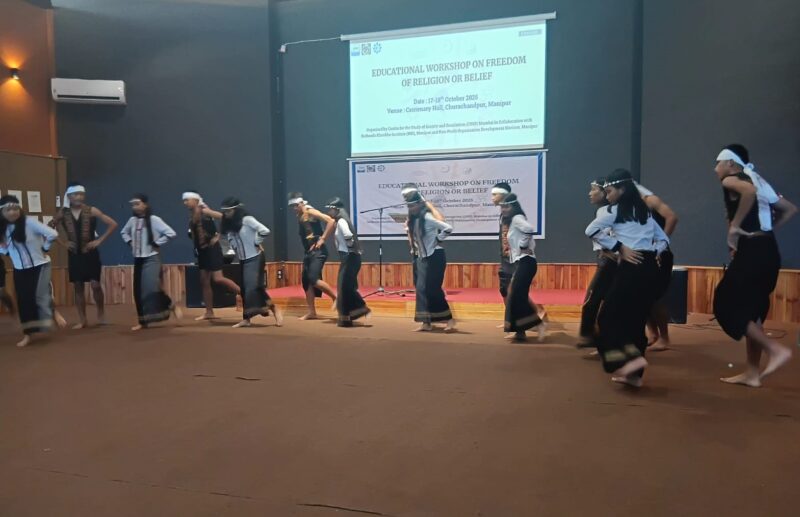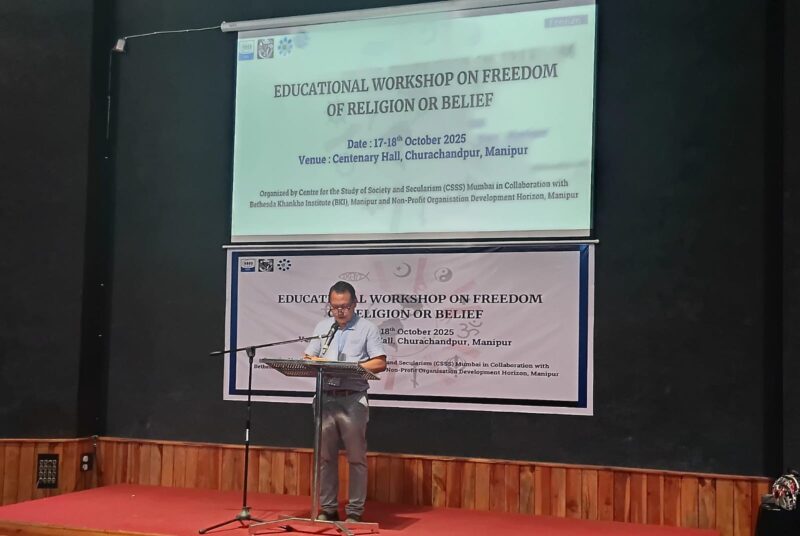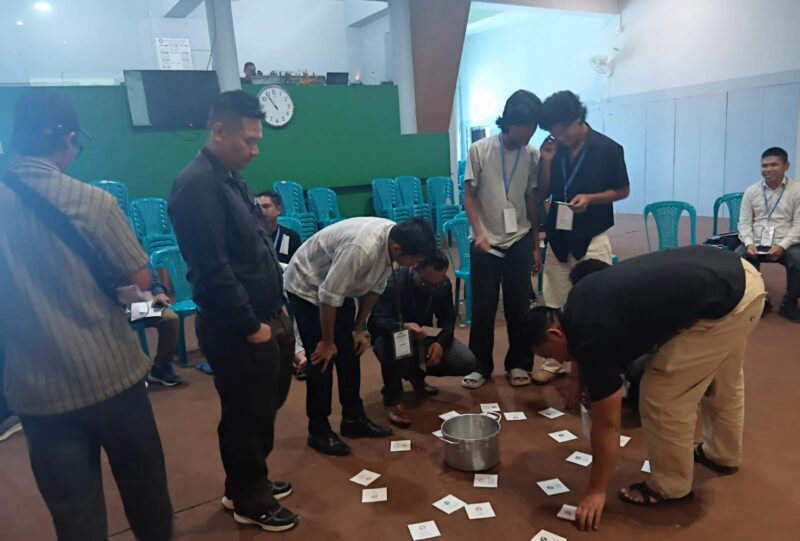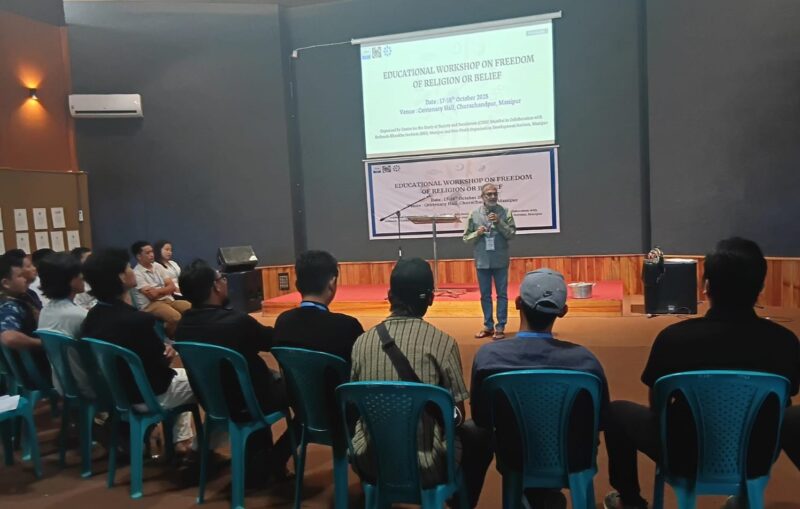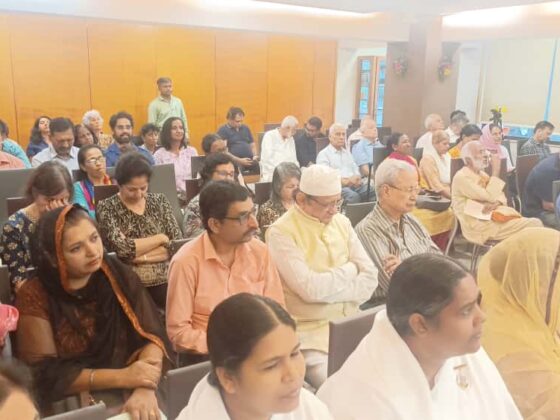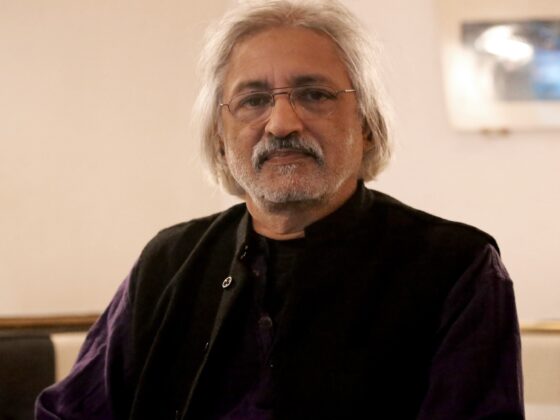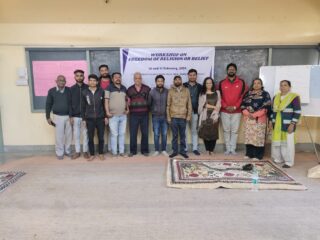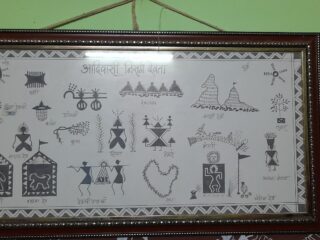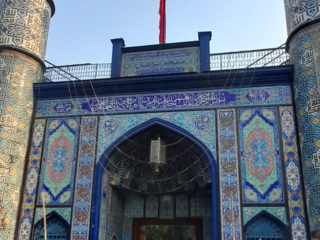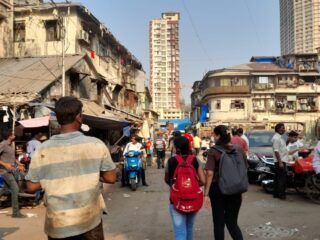17th and 18th October, 2025, Churachandpur, Manipur
The Centre for Study of Society and Secularism (CSSS), in collaboration with Bethesda Khankho Institute (BKI) and Development Horizon organized a two-day workshop on the theme “Freedom of Religion or Belief (FoRB)” in Churachandpur, Manipur. The workshop brought together twelve participants representing three districts of Manipur—Churachandpur, Kangpokpi, and Tengnoupal. The participants comprised student leaders, youth engaged in civil society organizations, and doctoral researchers. The inaugural session commenced with a traditional folk dance elegantly performed by students from Bethesda Institute.
The workshop held particular significance in the context of the ongoing conflict between the Kuki and Meitei communities, which erupted in May 2023. Despite various initiatives aimed at political dialogue and interventions by the Central Government, the stalemate continues, resulting in large-scale displacement of both communities—the Kukis from the Imphal Valley and the Meiteis from the adjoining hill districts. Although the conflict is primarily ethnic in nature, sparked by the judiciary’s 2023 decision to approve the Meitei community’s demand for recognition as a Scheduled Tribe, it also exhibited elements of violations of freedom of religion or belief (FoRB). This was evident in the widespread destruction and vandalism of places of worship, including Kuki and Meitei churches, as well as Meitei shrines.
The workshop was designed with the following objectives:
- To enhance participants’ understanding of human rights, with a specific focus on the concept of freedom of religion or belief (FoRB) and its relevance in everyday life.
- To introduce participants to various forms of conflict and to explore diverse theoretical and practical approaches to conflict resolution.
- To acquaint participants with constitutional provisions safeguarding the rights of Scheduled Tribes, with particular emphasis on the Sixth Schedule of the Constitution of India
The first segment of the workshop, facilitated by Neha Dabhade, Executive Director of the Centre for Study of Society and Secularism (CSSS), focused on developing a conceptual and practical understanding of human rights. The activities included an exercise on identifying fundamental human needs and mapping them onto the thirty articles of the Universal Declaration of Human Rights (UDHR). This session emphasized the universality of human rights and highlighted the state’s responsibility to protect and promote these rights for all individuals.
The subsequent session on Freedom of Religion or Belief (FoRB) emphasized that the essence of FoRB is encapsulated in seven key dimensions: think, belief, practice, question, change, and refusal. The discussion further examined the limitations of FoRB, particularly in contexts where conflicts arise between competing rights or interests, and elaborated on the guiding principles that should inform resolution in such situations.
Another session explored the typologies of FoRB violations, categorized as discrimination, restriction, and violence. These sessions were particularly enriching due to the diverse range of examples shared by participants, drawn from their own lived experiences and intersecting identities of gender, class, ethnicity, and religion. Although all participants belonged to the Kuki ethnic group and identified as Christians, their experiences were shaped by these multiple and intersecting identities, leading to nuanced understandings of rights and freedoms. Notably, the accounts shared by women participants revealed pronounced experiences of FoRB violations within homes and community spaces, underscoring the gendered dimensions of religious freedom.
The session on understanding peace and conflict resolution, facilitated by Adv. Irfan Engineer, Director of the Centre for Study of Society and Secularism (CSSS), provided participants with a nuanced understanding of the nature and dynamics of conflicts. The session emphasized that conflicts are not inherently undesirable; rather, they can serve as opportunities for growth and transformation when addressed through peaceful and constructive means. Participants were introduced to various analytical frameworks and approaches for comprehensively examining conflicts, enabling them to critically reflect on the underlying causes of tensions within their own social contexts. Through interactive discussions, participants shared relevant examples from their surroundings, thereby connecting theoretical insights with lived realities.
The subsequent session on the Constitution of India, conducted by Adv. Anthony Debbarma, a noted human rights activist, focused on the Sixth Schedule and its implications for the protection of tribal rights and self-governance. Adv. Debbarma provided a detailed overview of the historical and ongoing struggles of Scheduled Tribes and diverse ethnic communities in Northeast India, particularly concerning issues of land ownership, autonomy, and cultural preservation. Integrating a Christian ethical perspective, he underscored the values of universal humanity and peaceful coexistence as guiding principles for social harmony.
On the constitutional front, the session examined the provisions of the Sixth Schedule that ensure autonomy of district councils, thereby safeguarding the rights and interests of indigenous communities. Participants learned how the Schedule regulates land transfers to prevent alienation of tribal lands, mandates dedicated budgetary allocations for the governed regions, and provides protection against the imposition of laws that contravene tribal customs, rituals, and traditions. Simultaneously, Adv. Debbarma highlighted the importance of collective solidarity among the various ethnic groups in Northeast India, cautioning that demands for exclusive homelands and separatist movements may be counterproductive to achieving sustainable justice and peace.
The workshop was positively received by participants, who expressed a strong commitment to applying their learnings in analyzing and addressing the complex spectrum of conflicts within their communities. Overall, the workshop served as a valuable platform for exploring the universal and interconnected nature of human rights, while reinforcing the need for solidarity, dialogue, and collaboration among civil society actors and diverse ethnic groups in promoting peace and coexistence.
Participants found the inputs on human rights and conflict resolution beneficial for deepening their understanding on these subjects. They also appreciated the pedagogy of the workshop which included games, exercises and discussions in a very participatory framework. Though the participants upheld that justice should precede peace in the context of the recent conflict in Manipur, a different perspective from that of the resource persons, the participants felt that such discussions should continue. Different views in a safe environment would initiate much needed dialogue for conflict resolution. The participants also mentioned in their feedback that this workshop that helped them develop a contextual understanding of human rights, both for individuals and communities, should be held in other districts of Manipur.

